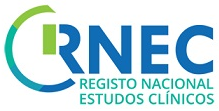How to conduct an interventional clinical study of medical devices in Portugal
The high complexity and the advance in all areas of medicine and healthcare means that every day are created and tested new technologies to improve the health of individuals, including through clinical studies of medical devices - medical devices1 and active implantable medical devices2.
The sponsor is the responsible for conducting the clinical study, and for its realization is essential to take into account the current scientific principles and data, in order to make the results a solid evidence of good functional performance of the device, under normal conditions of use and according to the purpose for which it was intended.
Clinical studies with medical devices should be perforned by physicians or technicians with scientific qualifications and appropriate experience, particularly in clinical investigation and preferably in the area of the proposed research.
There must also be followed Good Clinical Practice procedures under the standard EN ISO 14155 and relevant scientific guidelines provided by the European Commission.
At the European level, the rights and duties of investigators, sponsors and the National Competent Authority are set out in the Directives 93/42/EEC of June 14 and 90/385/EEC of June 20, in their current versions, which have been transposed to the national legal system by the Decree-Law No. 145/2009 of June 17.
Devices intended for clinical studies with intervention can be made available to researchers, provided they fulfill the conditions set out in the Decree-Law mentioned above.
At the national level, Law No. 21/2014 of April 16 regulates clinical research and lays down the obligations relating to clinical studies for medical devices and the system by which the sponsor submits these studies to the National Competent Authority and to the Competent Ethics Committee.Thus, with the entry into force of the law mentioned above, the articles contained in chapter V of Decree-Law No. 145/2009 of June 17 and part II of annex XVI of the same act were revoked.
These legal texts establish, at national level, the obligations relating to clinical studies for medical devices and the system by which the sponsor submits these clinical studies to INFARMED, I.P., as the National Competent Authority, and to the National Ethics Committee for Clinical Research (CEIC).
A clinical study is necessarily preceded by a favourable opinion of the Competent Ethics Committee (CEC), to be issued within 30 working days, without which the study cannot be performed.
In clinical studies with medical devices this committee is the CEIC - National Ethics Committee for Clinical Research, which issues a single opinion, unless it designates a CES - local ethics committee for health (based on the clinical center) for the purpose.
For the remaining medical devices (i.e., other than the above mentioned above) in addition to the opinion of the CEIC, the realization of clinical studies requires a notification to Infarmed.
The request for conducting a clinical study with medical devices requires the payment of a fee according to Ordinance No. 63/2015 of March 5.
The application for authorization, or the notification, to Infarmed can be submitted simultaneously with the request for an opinion to the CEIC.
In this context, the sponsor must submit the clinical study application to Infarmed (as set out in article 33 of Law No. 21/2014 of April 16) and to the CEIC (in accordance with the provisions of clause 16 of the same law).
Infarmed, as the competent authority for clinical studies with medical devices, conducts inspections on these studies to verify compliance with Good Clinical Practice procedures.
Infarmed or CEIC may suspend or withdrawn the authorization for the study if there are objective reasons to consider that the conditions under which the authorization (Infarmed) or opinion (CEIC) were based are no longer met or if there is information that raises doubts about the safety or the scientific validity of the clinical study.
___
1 Medical device is any instrument, apparatus, appliance, software, material or other article, whether used alone or in combination, including the software intended by its manufacturer to be used specifically for diagnostic and/or therapeutic purposes and necessary for its proper application, intended by the manufacturer to be used for human beings for the purpose of:
- diagnosis, prevention, monitoring, treatment or alleviation of disease,
- diagnosis, monitoring, treatment, alleviation of or compensation for an injury or handicap,
- investigation, replacement or modification of the anatomy or of a physiological process,
- control of conception,
and which does not achieve its principal intended action in or on the human body by pharmacological, immunological or metabolic means, but which may be assisted in its function by such means.
2 Active implantable medical device is any active medical device which is intended to be totally or partially introduced, surgically or medically, into the human body or by medical intervention into a natural orifice, and which is intended to remain after the procedure.


